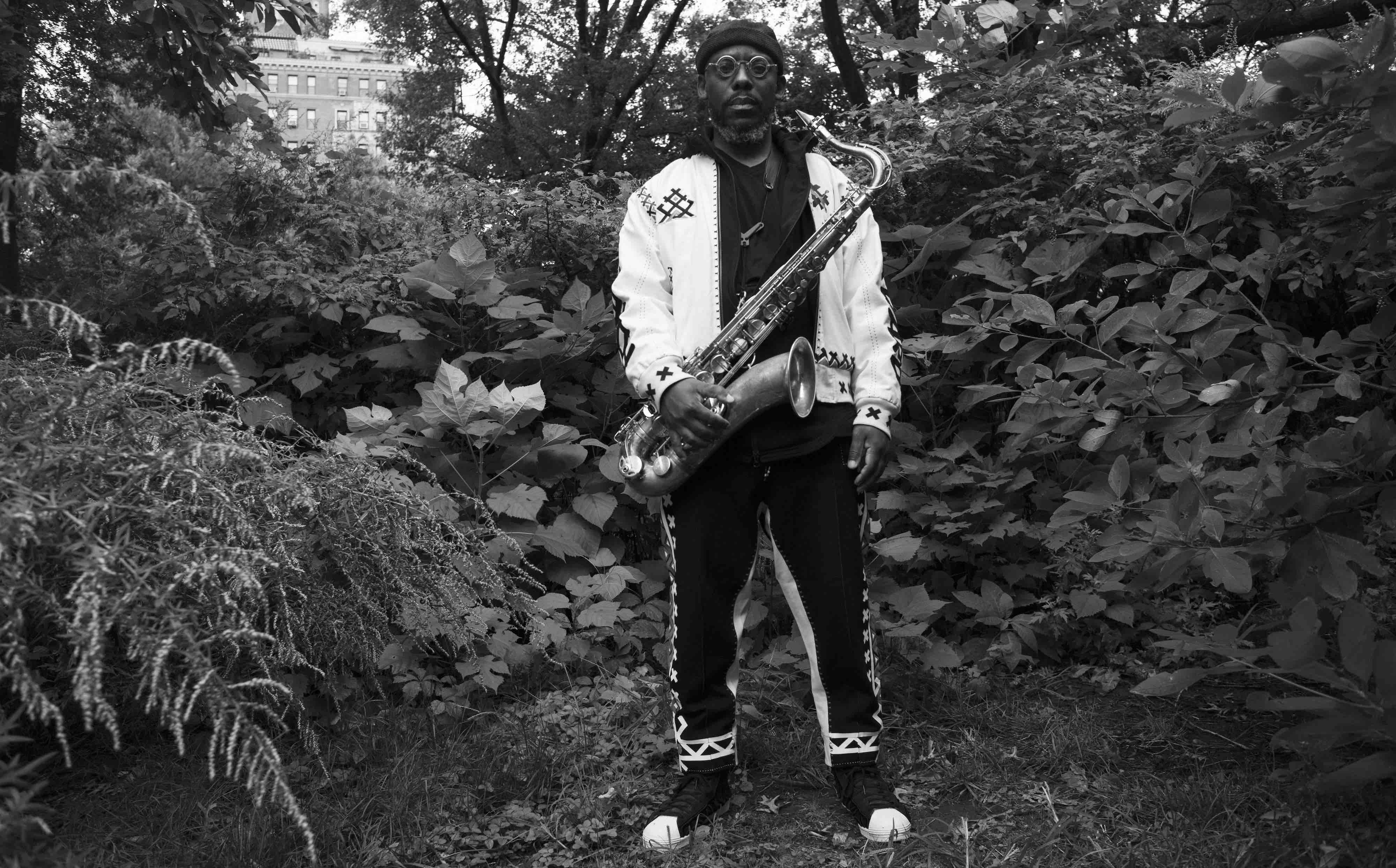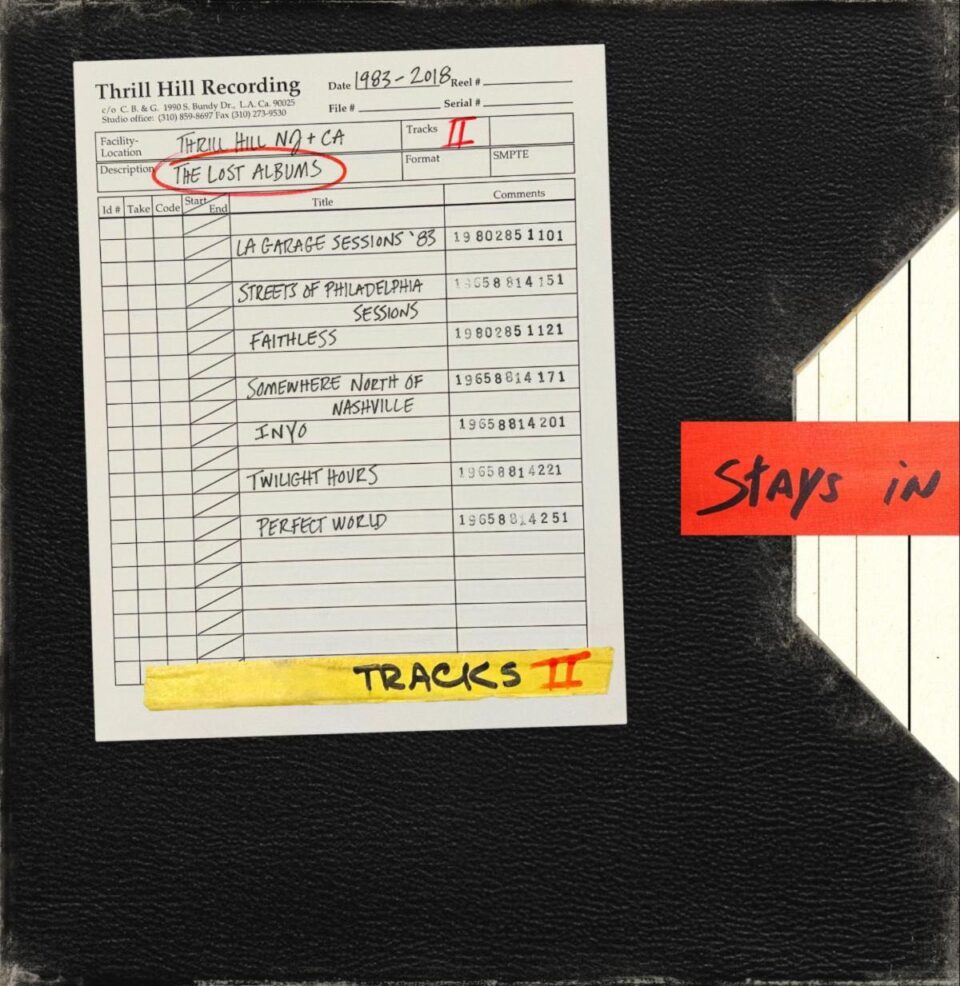When saxophonist Marcus Strickland wrote his latest Twi-Life jazz odyssey The Universe’s Wildest Dream, we were still so annoyed with a certain world’s-richest-person for his involvement in the peak-late-capitalist Space Race Redux: Billionaires Edition that we hadn’t even considered the reality that he’d get so sidetracked with buying up and immediately tanking a beloved social media platform that he’d be despised by most of us for other reasons (I think it’s safe to pluralize that) by the time the record landed. Yet the sentiment feels relevant all the same, with the album’s thematic throughline honing in on this growing Muskian idea of Earth as a testing ground for some future Martian society built by the folks who most abused their power on this planet before they’ve Noah’s Ark-ed away everyone they see fit to join them.
Despite all that, somehow, Wildest Dream isn’t a bleak record, but rather one that fits comfortably into a long lineage of Afrofuturist texts prophesying a utopian world of both financial and racial equality—if not for the sake of forecasting its existence, then at least as a way of coping with what will actually come next. “Most members of my demographic have no desire to travel back in time—the only desirable direction is forward to brighter days,” Strickland explains. “Countless Black musicians have always looked forward in time, and up to the heavenly bodies for inspiration in their music. From Sister Rosetta Tharpe and Sun Ra to Stevie Wonder and Herbie Hancock, Afrofuturism has always been our way to creatively transcend our circumstances.”
Ahead of the release of his new LP in January, Strickland took the time to compile a playlist of some of his favorite Afrofuturist moments in music, subtitling his collection of songs “Our Way of Coping with Our Reality.” Listen along and browse his write-ups below, where you can also find the visual for his latest track “Amygdala.”
Thundercat, “Heartbreaks + Setbacks”
From the get this track gets the blood pumping—preferable for bumping in a speedy sports car, convertible, or even a spaceship. In true Afrofuturistic fashion this song has an incessant feeling of hope, promise, and forward motion. Warm synths have always been the perfect tool to set up a spaced-out environment for trippy love lyrics and bass shreddin’. I used to blast this in my 350 Z (I miss that car) back in the day when coming back to Brooklyn from a gig in Manhattan or a nearby city.
Flying Lotus, “Zodiac Shit”
This track is straight-up space and bots. The sound of technology is a consistent theme in Flying Lotus’s music, a tapestry of exotic textures with heavy sidechained bass drums and phat snares. And of course this track is all about the sparse first half dropping into the sickest second half right after the strings fade out (1:34). The high-pitched industrial sounds used in place of hi-hats is a very signature sound of his, and I feel he’s one the most distinguished beatmakers of our time.
Quite Sane, “Short Stories”
Bassist Anthony Tidd dropped this super, super ill and highly conceptualized record in 2002. This record has been a marker in time for my development as a musician. Instead of synths, this track uses dense and muddy harmonies on piano to set a futuristic soundtrack for the masterfully stark and oddly shaped vocal melodies. The singers Marcina Arnold and Eska Mtungwazi absolutely killed this track, with their superhuman sense of pitch and crisply performed lyrics.
Georgia Anne Muldrow, “Leroy”
If you don’t know the future is female, ya better ask somebody. Georgia Anne Muldrow, who attended the same college as me (The New School in NYC), has always been an inspiration for me—always unapologetically herself, always funky, and pushing boundaries in every state of her being. Her beats make your head involuntarily move, no cap! The bass line is a perfect canvas on which she breaks down Leroy’s plight (whoever he may be).
Parliament, “Mothership Connection (Star Child)”
It’s impossible to talk about futuristic music without including George Clinton and Parliament/Funkadelic. Classic sound, OG funk, the right attitude to rise above the difficulties that arise in our lives. I feel the point of this music is to have a good ol’ time while being informed. Lyrics such as “Starchild” and “Mothership” are both suggestive and codified—this band created their own world that everyone wanted to be part of. The Black experience in America has always included codified language and bold aesthetics, and George Clinton is just that.
Stevie Wonder, “Blame It on the Sun”
The early- to mid-’70s was my favorite era of Stevie if I had to painfully choose one. He’s one of the first to experiment with analog synths when they were a huge, wall-mounted computer. He overdubbed each note of the chords you hear because it was monophonic synth, and he also played most of the instruments on most of the tracks of Talking Book. Since Egypt Africans and the diaspora have always referred to heavenly bodies like the sun and nature for guidance and refuge, Stevie’s lyrics and the title “Blame It on the Sun” are on-point as always. Futuristic, hardworking, and creative AF.
Prince, “Digital Garden”
Come on now, an electric marimba intro, a psychedelic trance groove, his voice and guitar, and the lyrics summoning the illest rebels to do “the work” against "the banished ones"’s digital garden—need I say more? Hell nah, it’s Prince, Afrofuturism’s best warrior, clad in purple, black, and white (a color scheme similar to Gede culture)!
John Coltrane, “Out of This World”
When I hear John Coltrane, I hear transcendence on countless levels. I hear him, not his saxophone. I hear the healing power of music instead of a genre. I hear divinity, the sound of something that is not of this world. I hear an incessant journey for self-betterment. It’s through Trane’s voice that I realized that our bodies are vessels for something that is beyond our understanding—the 21 grams, as claimed by Duncan MacDougall. John Coltrane was and is the spiritual component of Afrofuturism, a relentless search for purity that is not concerned with the past, present, or Earthly concerns.
George Duke, “The Future”
Again, that warm analog synth and key bass provide the perfect texture for sonically blasting off from Earthly issues. George Duke was the king of such endeavors, a heavy influence on the likes of Thundercat (I love his cover of Duke’s “For Love I Come”), myself, and countless others. His melodies glide over the most intricate harmonic rhythms to seam it all together. It’s smooth AF and reminiscent of Wayne Shorter and Stevie Wonder’s writing.
Marcus Strickland Twi-Life, “Dust Ball Fantasy”
To describe what was going on in my head when I wrote this song I’ll describe the cartoon that I want a cartoonist to make for it (if you’re reading this and have crazy good cartoon skills, holla). We see Earth with its lush jungles, seas, deserts, lagoons, glaciers, atmosphere, etc. Then we see Mars, a vacant and barren dust ball. As we start getting closer to Earth we see that there’s a huge international rave dance party to raise money and awareness for global warming, comparable to the rave scene in The Matrix Reloaded. We also see some humans boarding a ship to go to the nearby barren planet, brainwashed by the rich man to whom they will soon owe debt to finance their trips. The cartoonist can finish it off from there. Anyhow, the incomparable Lionel Loueke is featured on guitar and vocals singing in his native tongue Fon, “Let’s stay here and take care of the Earth / Life enjoyment is right here.”









